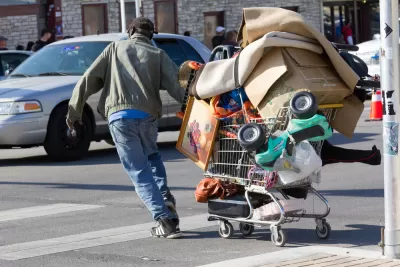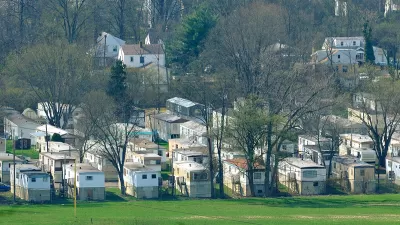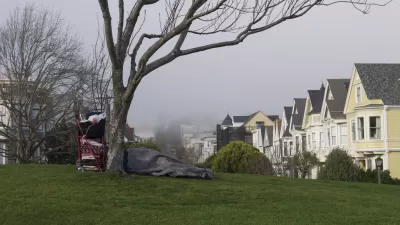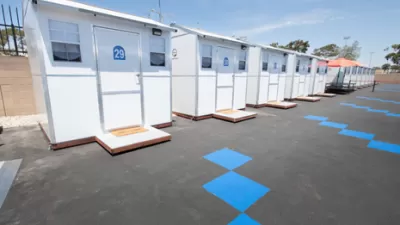The city wants to give its 7,000 citizens without permanent homes "[u]nique digital identifiers" to help them get reliable access to services.

Last week, Bloomberg Philanthropies awarded up to $100,000 to 35 projects as part of the initial phase of the 2018 US Mayors Challenge.
One of those project is from Austin; the city aims to use blockchain technology—the kind that is used in cryptocurrency—to make it easier for the city's estimated 7,000 homeless residents to access services. The proposal was inspired by efforts to use blockchain ID for Syrian refugees.
"The technology could be used to create unique digital identifiers for homeless people, allowing them to reestablish the credibility of their housing, health, and employment records and help put them on the road to recovery."
Housing prices and homelessness are up in a number of major U.S. cities, and Austin is not the first to look to the tech industry for a solution; Berkeley is considering using blockchain to issue tokens that could be redeemed at local stores. The goal of selling such tokens would be to raise money for affordable housing.
FULL STORY: Austin wants to use blockchain technology to help the homeless

Alabama: Trump Terminates Settlements for Black Communities Harmed By Raw Sewage
Trump deemed the landmark civil rights agreement “illegal DEI and environmental justice policy.”

Study: Maui’s Plan to Convert Vacation Rentals to Long-Term Housing Could Cause Nearly $1 Billion Economic Loss
The plan would reduce visitor accommodation by 25% resulting in 1,900 jobs lost.

Why Should We Subsidize Public Transportation?
Many public transit agencies face financial stress due to rising costs, declining fare revenue, and declining subsidies. Transit advocates must provide a strong business case for increasing public transit funding.

Paris Bike Boom Leads to Steep Drop in Air Pollution
The French city’s air quality has improved dramatically in the past 20 years, coinciding with a growth in cycling.

Why Housing Costs More to Build in California Than in Texas
Hard costs like labor and materials combined with ‘soft’ costs such as permitting make building in the San Francisco Bay Area almost three times as costly as in Texas cities.

San Diego County Sees a Rise in Urban Coyotes
San Diego County experiences a rise in urban coyotes, as sightings become prevalent throughout its urban neighbourhoods and surrounding areas.
Urban Design for Planners 1: Software Tools
This six-course series explores essential urban design concepts using open source software and equips planners with the tools they need to participate fully in the urban design process.
Planning for Universal Design
Learn the tools for implementing Universal Design in planning regulations.
Smith Gee Studio
Alamo Area Metropolitan Planning Organization
City of Santa Clarita
Institute for Housing and Urban Development Studies (IHS)
City of Grandview
Harvard GSD Executive Education
Toledo-Lucas County Plan Commissions
Salt Lake City
NYU Wagner Graduate School of Public Service





























